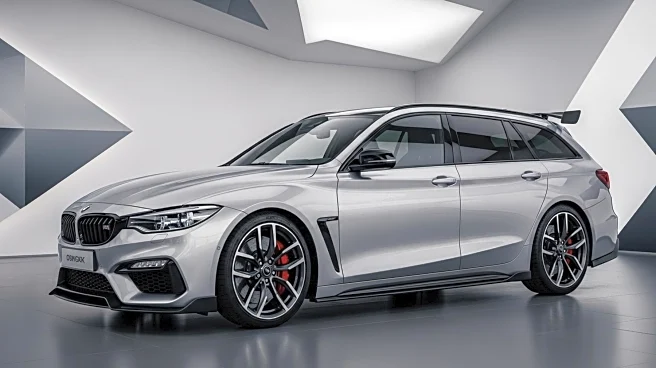What's Happening?
Performance wagons are gaining popularity in the U.S. market, with models like Audi's RS6 Avant and BMW's M5 Touring experiencing increased demand. These vehicles offer a blend of SUV practicality and sedan driving dynamics, appealing to enthusiasts. Despite this trend, traditional station wagons are disappearing from the market, as automakers focus on more profitable crossovers and SUVs. Volvo has ceased production of its V60 and V90 models, while BMW and Mercedes offer limited wagon options. The 'wagon tax' phenomenon, where used wagons command higher prices than sedans, highlights the demand-supply imbalance.
Why It's Important?
The shift towards performance wagons reflects changing consumer preferences and market dynamics. As crossovers dominate, wagons are positioned as luxury items, appealing to a niche market. This trend impacts automakers' strategies, potentially influencing future vehicle offerings. The decline of traditional wagons may lead to fewer affordable options for consumers, affecting the used car market. Automakers' focus on high-margin SUVs could limit diversity in vehicle types, impacting consumer choice and industry innovation.
What's Next?
Automakers may continue to explore the performance wagon segment, potentially expanding offerings if current models succeed. BMW's consideration of introducing the M3 Touring in the U.S. indicates possible growth in this niche. However, economic uncertainties may deter companies from investing heavily in wagons, favoring safer bets like SUVs. The evolution of electric vehicles could introduce new body styles, potentially reviving interest in wagons with aerodynamic designs.
Beyond the Headlines
The performance wagon trend highlights broader shifts in automotive design and consumer values. As manual transmissions and physical buttons become rare, wagons offer a nostalgic appeal. This dynamic may influence future vehicle design, balancing modern technology with traditional features. The success of performance wagons could inspire automakers to reconsider their approach to niche markets, fostering innovation and diversity in vehicle offerings.









